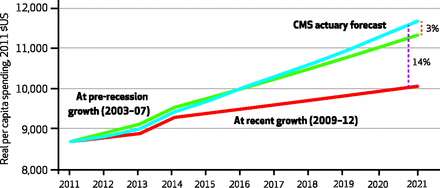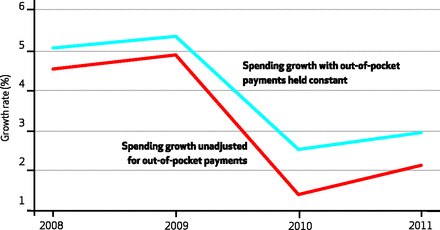 I am not going to be posting any new blogs for a while, because I will be traveling – a nice mixture of vacation and writing, mostly out of reach of desktop computers and laptops. I expect to return in August, refreshed and reinvigorated. I hope all of you find some summer relaxation time too. Meanwhile, thanks to the many of you who have commented on my posts, or emailed me with your thoughts.
I am not going to be posting any new blogs for a while, because I will be traveling – a nice mixture of vacation and writing, mostly out of reach of desktop computers and laptops. I expect to return in August, refreshed and reinvigorated. I hope all of you find some summer relaxation time too. Meanwhile, thanks to the many of you who have commented on my posts, or emailed me with your thoughts.
The Limits of Patient Empowerment
The video below is not super high quality, but it captures a talk I gave in Lima Peru recently, a very personal talk that also reveals some of the dangers of assuming that medical decision making will go swimmingly well as long as patients are informed and empowered. Check it out.
(Click here to view comments)
Malpractice Claims Feel Endless Because…They Are!
 I am very fortunate to have never been sued. That is not necessarily because of my amazing ability as a physician. I always practiced in Veterans Affairs medical centers, where my status as a federal employee meant I would not get sued by my patients. I also had an incredibly appreciative patient population.
I am very fortunate to have never been sued. That is not necessarily because of my amazing ability as a physician. I always practiced in Veterans Affairs medical centers, where my status as a federal employee meant I would not get sued by my patients. I also had an incredibly appreciative patient population.
But I know that most of my physician peers have been sued, successfully or unsuccessfully, at least once in their careers. And I know that these lawsuits take an emotional toll upon them. To make matters worse, malpractice lawsuits have a nagging tendency to drag themselves out for months upon months…(Read more and view comments at Forbes)
Sleep Deprivation in Hospitals Is a Real Problem
 The importance of sleep is perhaps most realized when we become sick. When we are hospitalized and most in need of every ounce of health, though, hospital care practically guarantees that we won’t get good sleep. Fortunately, two approaches hold promise to improve sleep for patients: one organizational, and the other a common trick of the trade among those of us working in behavioral economics.
The importance of sleep is perhaps most realized when we become sick. When we are hospitalized and most in need of every ounce of health, though, hospital care practically guarantees that we won’t get good sleep. Fortunately, two approaches hold promise to improve sleep for patients: one organizational, and the other a common trick of the trade among those of us working in behavioral economics.
Recently I was all-too-miserably reminded of the challenges of hospital sleep when I spent a fitful night recovering from surgery to remove a small kidney tumor. Unlike some patients in that situation, my sleep was not disturbed by pain or nausea; I was lucky to avoid both of those postoperative complications. Instead, my sleep was interrupted, hourly, by clinicians taking care of me. There were vital sign checks every four hours, a frequency that makes sense given that I had just had part of my left kidney removed. Sometimes sleep interruptions are necessary in order to monitor patient conditions. But those vital sign checks, at midnight and 4 a.m., were not the only interruptions I experienced that night. At 3 a.m., if my very foggy memory serves me correctly, someone came into my room to draw blood for follow-up laboratory tests. Several other times that evening, the machine hovering near my left ear beeped to tell me that one of my IV medications had run out; I would push the nursing button and tell the person at the desk about the beeping, and eventually someone would come in and either replace the empty IV bag or turn the alarm off.
Between 10 p.m. and 6 a.m., I did not go more than an hour without some kind of interruption… (Read more and view comments at The Atlantic)
More on the Social Psychology of Public Parks
 I recently posted on how public park builder, Robert Moses, used the psychology of sunk costs to get more money for his ambitious projects. Once those projects were complete, he also used social psychology to keep them clean. It had to do with the directions he gave to the people hired to clean up the Parks:
I recently posted on how public park builder, Robert Moses, used the psychology of sunk costs to get more money for his ambitious projects. Once those projects were complete, he also used social psychology to keep them clean. It had to do with the directions he gave to the people hired to clean up the Parks:
Patrolling the Boardwalk, conspicuous in snow-white sailor suits and caps, they hurried to pick up dropped papers and cigarette butts while the droppers were still in the vicinity. They never reprimanded the culprits, but simply bent down, picked up the litter, and put it in a trash basket. To make the resultant embarrassment of the litterers more acute, Moses refused to let the Courtesy Squatters use sharp-pointed sticks to pick up litter without stooping. He wanted the earnest, clean-cut college boys stooping, Moses explained to his aides. It would make the litterers more ashamed.
Once again, he displayed how a brilliant understanding of human nature comes in handy, when you are trying to influence people.
The Challenge of Predicting Future Medicare Expenses
As I pointed out in a recent post, experts have been debating what has caused the recent slowdown in medical spending in the United States. They are also try to figure out whether that slowdown will continue. And figuring this out is pretty darn important, because it has a major impact on how we budget for future Medicare expenses. Consider this picture from a recent study in Health Affairs, which looks at how much money we might be spending, per person, on Medicare in upcoming years, depending on how quickly Medicare costs grow:

If the slowdown continues, we might end up spending $1500 less per year, per Medicare enrollee, by the year 2021. Multiply that by the number of people on Medicare, and we might just save ourselves $401 billion, in the year 2021 alone. We are getting close to talking about real money now!
Sunk Costs and Public Parks
 Behavioral economists have written a lot about sunk costs. The idea is pretty simple: once people have invested in an effort – in time or money – they stick with that effort longer than is otherwise justified. They don’t want to feel like they’ve wasted their investment, so they continue to invest even when pulling out of the effort would be in their best interests.
Behavioral economists have written a lot about sunk costs. The idea is pretty simple: once people have invested in an effort – in time or money – they stick with that effort longer than is otherwise justified. They don’t want to feel like they’ve wasted their investment, so they continue to invest even when pulling out of the effort would be in their best interests.
In his book, The Power Broker, Robert Caro describes how the central figure in his book, Robert Moses, makes use of the psychology of sunk costs. He would obtain funding for an ambitious new public project – perhaps a park or highway – while dramatically underestimating how much the project would ultimately cost. Using the initial money, he would dig trenches, build foundations, etc. When the money would run out, he had legislators exactly where he wanted them:
Once they had authorized that small initial expenditure and you had spent it, they would not be able to avoid giving you the breast when you asked for it. How could they? If they refused to give you the rest of the money, what they had given you would be wasted, and that would make them look bad in the eyes of the public. And that they said you had misled them, well, they were not supposed to be misled. If they had been misled, that would mean they haven’t investigated the projects thoroughly, and had therefore been derelict in their own duty. The possibilities for a polite but effective form of political blackmail were endless. Once the legislature gave the money to start a project, it would be virtually forced to give you the money to finish it.
The field of behavioral economics did not exist at the time Robert Moses utilized these brilliant tactics. He was a man well ahead of his time.
What Made Our Greatest Surgeon General So Great
 I have been thinking a lot about C Everett Koop lately, ever since his death on February 25 at the ripe old age of 96 and more recently with the announcement that our current Surgeon General, Regina Benjamin, is planning to step down from that post. In particular, I have been pondering what made Koop such an effective Surgeon General, and what has made it so hard for his successors to approach even a portion of his impact… (Read more and view comments at Forbes)
I have been thinking a lot about C Everett Koop lately, ever since his death on February 25 at the ripe old age of 96 and more recently with the announcement that our current Surgeon General, Regina Benjamin, is planning to step down from that post. In particular, I have been pondering what made Koop such an effective Surgeon General, and what has made it so hard for his successors to approach even a portion of his impact… (Read more and view comments at Forbes)
See What Cost Shifting Is Doing to Medical Spending
There has been lots of talk lately about a slowdown in health care expenditures. This has caused even more debate about whether the slowdown is temporary or permanent, and whether the Affordable Care Act deserves any credit for it. Below here is a picture from a recent analysis in Health Affairs, which shows the change in health spending over the last four years, among employees receiving healthcare benefits from large companies:

Two things to notice in this figure. First, healthcare expenses in these large firms still grew pretty quickly in 2008 and 2009, despite the slowdown in the economy. It is only the last two years that of seen a dramatic reduction in spending growth, one that’s hard to tell whether it will last or not. Second, a decent chunk of this reduction is due to the fact that these firms are handing off more of the costs to their employees, a.k.a. patients. Expect more of this cost shifting over the next few years. Employers are desperate to control their healthcare expenses. One way to do that is to ask employees to pay more for their healthcare.
(Click here to view comments)
A Great Sentence from Brian Hiatt in Rolling Stone Magazine
In an article about Natalie Maine, the former lead singer for The Dixie Chicks, Hiatt writes about the way her conservative, country fan base reacted when she spoke negatively about President George W. Bush. I thought it was worth sharing this sentence:
It was as if she’d French-kissed Saddam Hussein while setting fire to a puppy wrapped in the American flag.
Try to get that image out of your mind!
